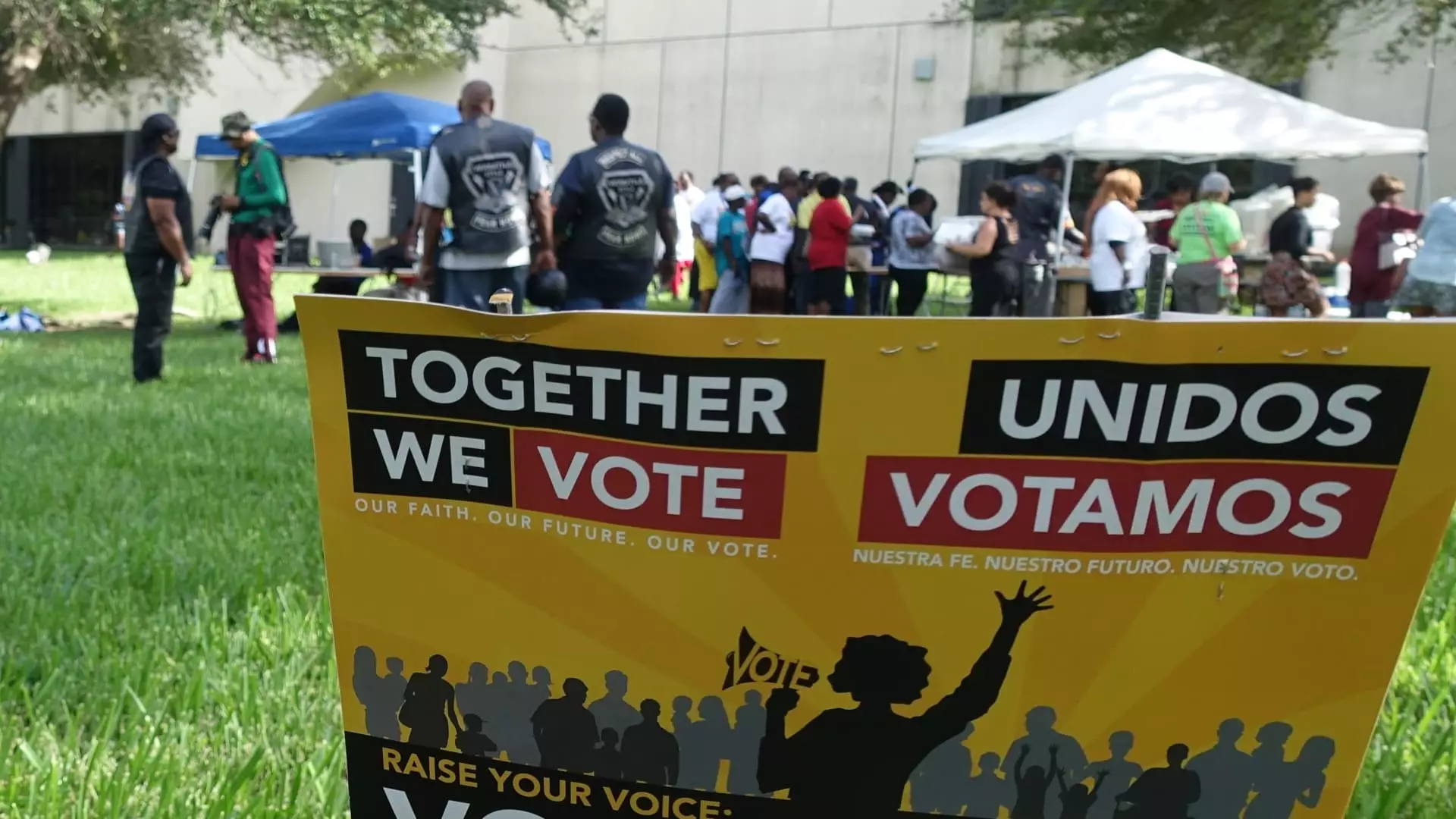The upcoming election season marks a pivotal moment for the Harris campaign as they embark on an extensive initiative aimed at mobilizing Latino voters. With strategic planning set against the backdrop of National Hispanic Heritage Month, the campaign is making significant investments in various outreach methods to engage this crucial demographic. Amid concerns about high-stakes elections and the influence of misinformation, the campaign’s strategy reflects a comprehensive approach grounded in community involvement, cultural engagement, and innovative communication strategies.
At the heart of Harris’s strategy is a well-timed focus on cultural events that resonate with Latino communities. The integration of Spanish-language radio advertisements and outreach at sporting events is not merely opportunistic; it recognizes the significant role that sports play in Latino culture. By targeting events such as boxing matches and baseball games, the campaign is tapping into communal experiences that foster connection and camaraderie among Latino voters. Notably, prominent events featuring well-known athletes, such as the anticipated fight between Canelo Alvarez and Edgar Berlanga, serve as more than entertainment; they are a means to forge a relatable presence of the campaign within these communities.
In addition to sporting events, the campaign’s participation in events like Mexican Independence Day establishes a culturally relevant footnote that emphasizes shared history and pride. These initiatives are essential in transcending typical political discourse, enabling the campaign to communicate its message through a cultural lens that resonates more deeply with potential voters.
Recognizing the growing influence of digital communication platforms, the Harris campaign has established a “Latinos con Harris-Walz” WhatsApp channel to combat misinformation while directly engaging with voters. This channel is designed to counteract the dangers of misinformation that abound on social media, a necessity in today’s political climate where false narratives can sway public opinion significantly. By employing trusted messengers within these communities, the campaign aims to create networks of reliability, encouraging voters to engage with accurate information.
Moreover, this strategy underscores an acute awareness of the channels through which younger and digitally inclined Latino voters consume information. By benchmarking its outreach in spaces where voters frequent, the campaign is endeavoring to create authentic dialogues that build trust and recognition among undecided voters.
The Harris campaign’s financial commitment of $3 million to Spanish-language radio represents one of the most robust investments aimed at Hispanic media in recent political history. The campaign seeks to employ tailored messaging that appeals directly to Latino voters’ interests, particularly those engaging with culturally relevant sports programming. Such efforts signify a modern approach that veers away from more conventional advertising techniques, opting instead for a resonance in the listeners’ daily lives.
Furthermore, the empirical data indicating the preference for Harris among bilingual and Spanish-dominant households emphasizes the effectiveness of this targeted approach. By diversifying its communication strategy to adapt to varying levels of English proficiency, the campaign may effectively address contrasting perspectives within Latino households—something that is crucial for capturing a more significant portion of the electoral spectrum.
The Consequential Role of Endorsements and Partnerships
Another essential element in bolstering Harris’s outreach to Latino voters has been the involvement of notable Latino leaders and local representatives. Their participation in campaign events underscores a collective approach wherein shared identities and experiences enhance the campaign’s credibility and outreach potential. By leaning on respected figures within the Latino community, the campaign effectively builds a coalition that not only inspires trust but also enhances engagement efforts through grassroots efforts.
The strategic enlistment of individuals like Rep. Adriano Espaillat and Gov. Tim Walz further illustrates the campaign’s understanding of the dynamics at play in swing states with significant Latino populations. Their appearances at vital events create a multi-faceted approach that amplifies reach and taps into existing community structures.
The Harris campaign’s robust plan to engage Latino voters may hold crucial implications for the upcoming election. By intertwining cultural relevance, strategic communication channels, comprehensive digital efforts, and strong alliances with Latino leaders, the campaign builds a framework that acknowledges and prioritizes the diverse experiences within the Latino community. With many critical battleground states in mind, the success or failure of this outreach endeavor could significantly shape electoral outcomes.
In essence, the approach taken by the Harris campaign serves as a template for future political efforts aimed at inclusivity within minority communities. It not only emphasizes the importance of personal connection to voters but also showcases the necessity for campaigns to be adaptable in their methods to respond effectively to the cultural and social intricacies present within the electorate. The stakes are high, and as National Hispanic Heritage Month commences, the eyes of many will be on the campaign’s efforts to mobilize and inspire Latino voters.


Leave a Reply